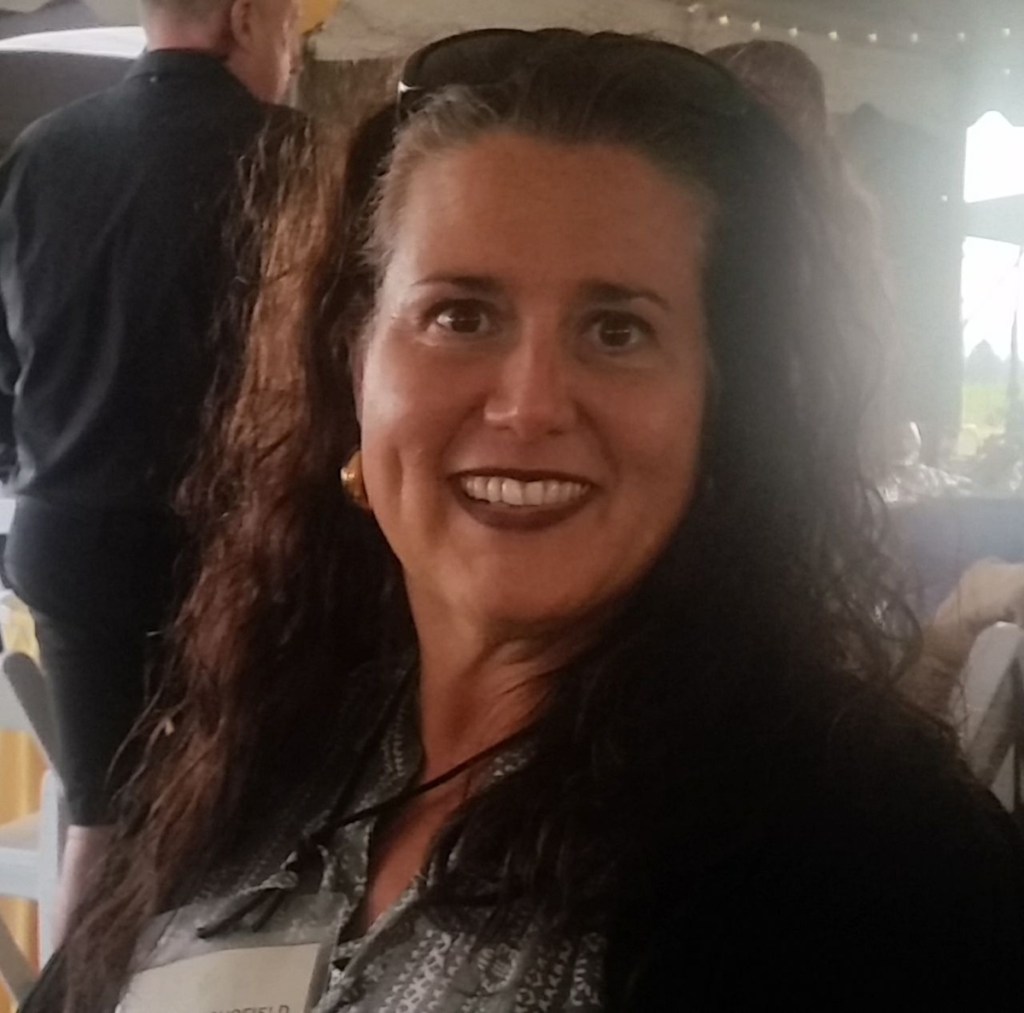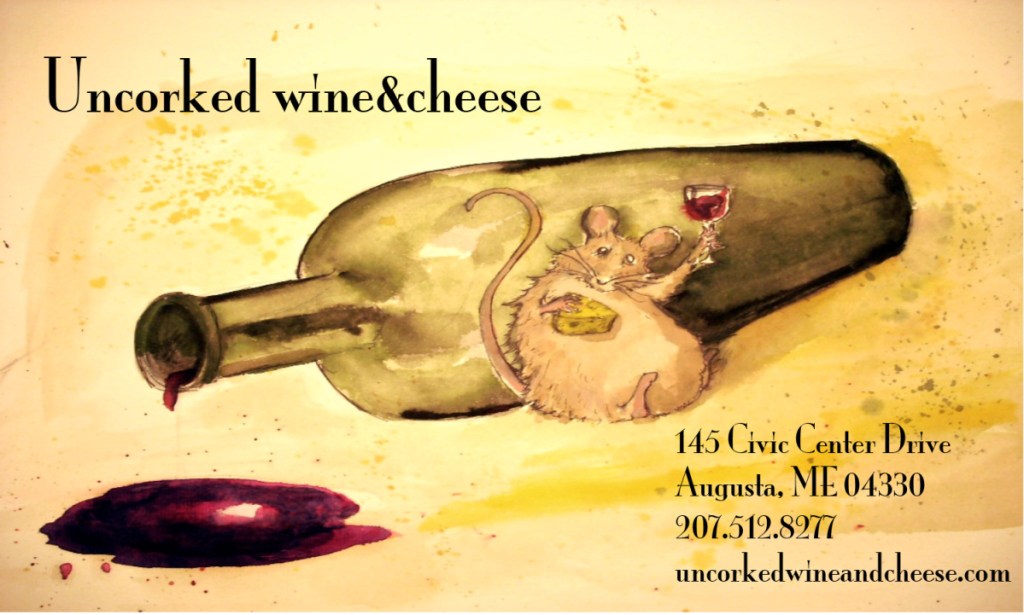Name: Kimberly Schofield
Age: 51
Title: Owner
Company: Uncorked Wine & Cheese, Augusta
About: A wine and cheese shop
Website: www.uncorkedwineandcheese.com
What’s your biggest challenge?
Space. For my business, more space.
One of the biggest physical challenges I have is parking. People find it intimidating if they haven’t been here before. People don’t know how to get in and out of here. I would like to have more space at the juncture, and I haven’t figured out the route I want to take with it.
I have been looking at growth almost the entire time I have been here. I show growth across the board, and I have pretty much maxed out what I can do with the space I have right here. It’s not always double-digit growth, but for the most part it’s been double-digit growth.
I started the business in October 2010. I had owned two businesses in the past. Prior to moving back to Maine — I had been living in Boston for the last 12 years, and my last position was with a restaurant group — this all kind of happened on the fly. I had no time to write a business plan. It was too much on the fly, but having the background I have, I wasn’t concerned about a business plan per se.
Looking at my future, I have been successfully working on a new business plan that is extremely comprehensive.
One of the biggest challenges is honest-to-goodness dealing with banks. It is ugly to small business. Another thing that people don’t understand is that when we talk about small business, the media, the government and the public perception is that small business is anything under 300 employees. So I am not a small business; I am a microbusiness. Of course, banks want to loan to businesses with 300 to 500 employees; that’s easy. It’s much more challenging when you are a single owner and employee.
What’s the best advice that anyone has ever given you?
I have gotten a lot of good advice over the years, so I will share with you advice I have shared with many others, and it may be the best piece as a whole. Years ago, when I worked at Sunday River ski resort in the ’90s, I was attending a national conference, and a woman from one of the Western ski resorts was speaking. What she said I have applied to business across the board, whether it’s my own or I’m working for someone else. It’s that when somebody is unhappy with you or is complaining, ask them what they want, what would make them happy. Because nine times out of 10, what they’re willing to take is far less than you were willing to give.
When you really start thinking about that from a customer service standpoint, don’t just jump to conclusions and offer all kinds of things, because that all comes out of your bottom line and that’s very taxing for a small business especially. For the Walmarts of the world, that’s one thing.
But a little business — Lord knows I want to do everything I can to make a customer happy. But ask the question. So you are addressing it appropriately and you are listening to them. Oftentimes, they’ll turn it around and say, “What are you willing to give?” And I always turn it back around and say, “That’s not what I asked you. What I asked you is what will make this right? What will make you happy?” That advice is a little less applicable here. I have not had customers come back to me and complain. But at the same time, I need to be listening to customers and their wants and needs all the time, and being respectful for what those wants and needs are. Certainly I do everything in my power not to make people feel, for lack of a better term in the moment, stupid about wine. I think that’s why I do well. They come through the door, eight years, hands up, and go, “I don’t know anything about wine, and I don’t want to spend a lot of money.” I say you’re in the right place. We’re all on the same curve; we’re just on a different place on the curve.
The advice as a whole is very applicable to business in general and good customer service. With the onslaught of business that’s done on the internet, we’re losing track of how to be customer-service-oriented.
How do you foster creativity in yourself?
I don’t have a lot of time to read magazines, but I get a couple of gourmet news or industry-driven magazines that I try to take the time to glance at and try to get a sense of the trend, especially if it’s gourmet food or cheese. My background is food. I’m very fussy. I look for anything that grabs my attention, order samples, and see if it’s worth bringing in, because I don’t have a lot of space. I do attend trade shows in the spring and then some again in the fall. That gets me out — my lovely mother has to come in and works the shop — but it gets me out and attending trade shows, which is huge when it comes to the wine. It gives me the opportunity to see other people to talk about business, about wine and what’s selling and what’s not selling. I might not see these people for another year or until the next trade show.
Maine is so diverse. What sells in Portland doesn’t sell in Augusta and vice versa. It’s an interesting conversation and it’s ongoing between many of us. That probably helps foster creativity more than anything, the ability to go to trade shows.
What is your biggest concern?
Maine’s laws in regards to retail sale of wine are slightly post-Prohibition (after the period in U.S. history from 1920 to 1933 when the manufacture and sale of alcohol was illegal). Understanding that Maine led the way with Prohibition, I fail to understand how in 2018 how we are so far behind the other states when it comes to how many wine tastings we can do a month. We can do only three a month, and I have to submit paperwork to the state on each and every one of them. If I wanted to have a bottle of wine open in my shop every day, that’s coming from my bottom line. I’m not trying to be a wine shop at that point. I just want people to taste something I am trying to promote and sell. The idea that I am somehow going to chug-a-lug glasses of wine with my friends, well, I’m not in the business to give it away. I am in the business to sell it.
Maine is so far behind, it’s astonishing. I think it’s such a mess, that somebody writes a bill to put a Band-aid on something else, but we’re never really fixing it the whole lot of it. And I don’t have an answer other than to wipe it out and start over, but nobody’s going to do that. The laws of the state are not conducive to small business when it comes to comes to wine and beer. They are limited, shortsighted and challenging, to say the least. I am probably being kind.
We have been held in this state to only what distribution the large distribution companies want to bring in. It’s not consumer-driven. The wine that I’m able to get is not necessarily based on what the consumers ask for and want, it’s based on the deals brokered by the distribution companies with the wineries.
There’s something that’s very counterintuitive when it comes to how our system is supposed to work in that a consumer wants a product and I can get that product. That’s not how it works here. They changed the law so I can actually get anything I want, but I still have to go through a distributor. So this $7 bottle of wine is now going to be $30. By the time I have to pay the deposit and the tax and get the wine, I have to cover the shipping costs and then the distributor is going to want their cut of the wine, which is far greater than my cut. It has been put into law that it is possible, but it’s not practical.
Is current trade environment a challenge for your business?
No. What has a greater effect is interstate business. There’s perceived savings and value to wine purchased in New Hampshire. We don’t live very far from the New Hampshire border here. People are traveling all the time. It’s easy to get to the New Hampshire liquor store. There are times they offer great sales, and I am fully aware of that. But they’re also making it up somewhere else. There are times customers have gone down there and come back and said, “I’ve gotten XYZ wine, and I paid $10 a bottle and you have it for $22 a bottle,” or something. It’s not because I have marked it up beyond a reasonable and acceptable margin; it’s because sometimes New Hampshire is different. They don’t have sales tax. There’s any number of things that will affect that price in the state of New Hampshire that won’t work here. You have to, just like to going to Sam’s Club or BJ’s or Costco, be aware of what you are buying. Just because this is cheaper, the Tide may not be. It’s a perceived savings. Some things are a savings but a lot of things are not. Because we think everything is cheaper at the New Hampshire liquor store, we have people who get in the car and drive there. Nobody’s factoring in their time and gas to get there and back. Even if they were going anyway, you still need to factor in how long you were there and what is your time worth and the percentage of that gas.
The perceived value is different a lot of the time from the actual, and that’s a thing that customers don’t consider.
Send questions/comments to the editors.




Success. Please wait for the page to reload. If the page does not reload within 5 seconds, please refresh the page.
Enter your email and password to access comments.
Hi, to comment on stories you must . This profile is in addition to your subscription and website login.
Already have a commenting profile? .
Invalid username/password.
Please check your email to confirm and complete your registration.
Only subscribers are eligible to post comments. Please subscribe or login first for digital access. Here’s why.
Use the form below to reset your password. When you've submitted your account email, we will send an email with a reset code.